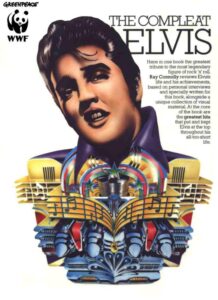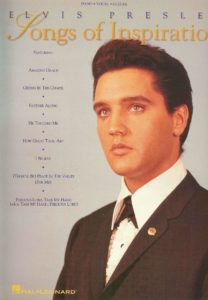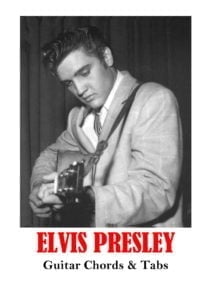Come join us now, and enjoy playing your beloved music and browse through great scores of every level and styles!
Can’t find the songbook you’re looking for? Please, email us at: sheetmusiclibrarypdf@gmail.com We’d like to help you!
Table of Contents
Elvis Presley Can’t Help Falling In Love piano sheet music, Noten, partitura, spartiti, partition, 楽譜
Please, subscribe to our Library.
If you are already a subscriber, please, check our NEW SCORES’ page every month for new sheet music. THANK YOU!

Best Sheet Music download from our Library.
Elvis Presley: The King of Rock ‘n’ Roll
Elvis Aaron Presley, often hailed as the “King of Rock ‘n’ Roll,” revolutionized music, culture, and entertainment in the 20th century. With his electrifying voice, charismatic stage presence, and genre-defying artistry, Elvis became a global icon whose influence endures decades after his death. This article explores his life, musical innovations, cultural legacy, filmography, and discography, offering a comprehensive look at the man behind the legend.










Browse in the Library:
Or browse in the categories menus & download the Library Catalog PDF:
Biography
Early Life (1935–1954)
Elvis was born on January 8, 1935, in Tupelo, Mississippi, to Vernon and Gladys Presley. Growing up in poverty, he found solace in music, influenced by gospel at the Assembly of God Church and blues on Beale Street in Memphis, where his family moved in 1948. In 1953, he paid $4 to record a demo at Sun Studio, catching the ear of producer Sam Phillips.
Rise to Stardom (1954–1958)
Phillips paired Elvis with guitarist Scotty Moore and bassist Bill Black, leading to the 1954 single “That’s All Right,” a bluesy reimagining of Arthur Crudup’s song. This marked the birth of rockabilly, blending country, blues, and R&B. Hits like “Heartbreak Hotel” (1956) propelled Elvis to fame, with his hip-shaking performances on The Ed Sullivan Show sparking both adoration and controversy.
Military Service and Hollywood (1958–1968)
Drafted into the U.S. Army in 1958, Elvis served in Germany until 1960, where he met Priscilla Beaulieu (later his wife). Post-military, he focused on films, starring in 33 movies like Blue Hawaii (1961) and Jailhouse Rock (1957). Though commercially successful, critics panned many as formulaic.
Comeback and Las Vegas Residency (1968–1977)
The 1968 NBC TV special Elvis (the “Comeback Special”) reignited his career, showcasing raw talent over Hollywood glitz. He then launched a historic Las Vegas residency, performing over 600 shows. Despite professional highs, personal struggles—divorce, prescription drug dependency, and health issues—plagued him. Elvis died on August 16, 1977, at Graceland, his Memphis mansion.

Music Style
Elvis’s genius lay in synthesizing diverse genres:
- Rockabilly: Early hits like “Blue Suede Shoes” fused country twang with blues rhythms.
- Gospel: His spiritual roots shone in albums like How Great Thou Art (1967).
- Ballads and Pop: Crooning tracks like “Can’t Help Falling in Love” showcased his vocal versatility.
- R&B/Soul: Covers of Big Mama Thornton’s “Hound Dog” and Otis Blackwell’s “Don’t Be Cruel” brought Black music to mainstream audiences.
Vocal Technique: Elvis’s voice spanned a rich baritone to a soaring tenor, with emotive vibrato and improvisational flair.
Licks and Harmony
Guitar Licks: Scotty Moore’s playing defined Elvis’s early sound. Tracks like “Jailhouse Rock” feature bluesy bends and rockabilly licks using pentatonic scales. Moore’s solo in “Hound Dog” (1956) exemplifies twangy, rhythmic precision.
Harmony: Elvis’s harmonies often drew from gospel quartets. The Jordanaires’ backing vocals in “Love Me Tender” (1956) added depth, while “Suspicious Minds” (1969) used lush orchestration. Common chord progressions included the 12-bar blues (I-IV-V) in “That’s All Right” and doo-wop changes in “It’s Now or Never.”
Influences
- Gospel: Groups like the Blackwood Brothers shaped his emotive delivery.
- Blues/R&B: Arthur “Big Boy” Crudup, B.B. King, and Sister Rosetta Tharpe inspired his rhythmic intensity.
- Country: Hank Williams and Jimmie Rodgers influenced his storytelling.
- Pop: Dean Martin’s crooning style seeped into ballads like “Are You Lonesome Tonight?”
Elvis, in turn, inspired The Beatles, Bruce Springsteen, and countless others. John Lennon famously said, “Before Elvis, there was nothing.”
Legacy
Elvis’s impact is immeasurable:
- Cultural Integration: He popularized African American music amid 1950s segregation, bridging racial divides.
- Sales: With over 1 billion records sold, he remains a chart titan.
- Awards: Three Grammys, a Lifetime Achievement Award (1971), and inductions into the Rock and Roll, Country, and Gospel Halls of Fame.
- Graceland: Now a museum, it attracts 600,000+ visitors annually.
Critics note debates over cultural appropriation, yet his reverence for Black artists and philanthropic efforts (e.g., charity concerts) counterbalance such claims.
Filmography
Though uneven, Elvis’s films include highlights:
- Love Me Tender (1956): His acting debut.
- Jailhouse Rock (1957): Iconic dance sequences.
- Viva Las Vegas (1964): Co-starring Ann-Margret.
- King Creole (1958): A critically acclaimed drama.
Documentaries like This Is Elvis (1981) and The Searcher (2018) delve into his complexities.
Discography
Key Albums:
- Elvis Presley (1956): Debut LP with “Blue Suede Shoes.”
- Elvis’ Christmas Album (1957): Best-selling holiday album ever.
- From Elvis in Memphis (1969): Soulful comeback.
Singles:
- “Heartbreak Hotel” (1956)
- “All Shook Up” (1957)
- “In the Ghetto” (1969)
Live Recordings:
- Elvis: Aloha from Hawaii (1973): First global concert broadcast.
Documentaries and Videos
- Documentaries:
- Elvis: The Searcher (2018) (HBO)
- This Is Elvis (1981)
- Classic Performances:
- “Jailhouse Rock” (1957)
- “Suspicious Minds” (1968 Comeback Special)
- “Hound Dog” on The Ed Sullivan Show
Elvis Presley’s artistry transcended boundaries, making him a cultural cornerstone. From humble beginnings to global superstardom, his music, and persona continue to resonate, proving why he remains the undisputed King. As Bono once said, “Elvis Presley stole from the rich and gave to the poor… he made blues and country sing to each other.” His legacy, much like his voice, is eternal.
